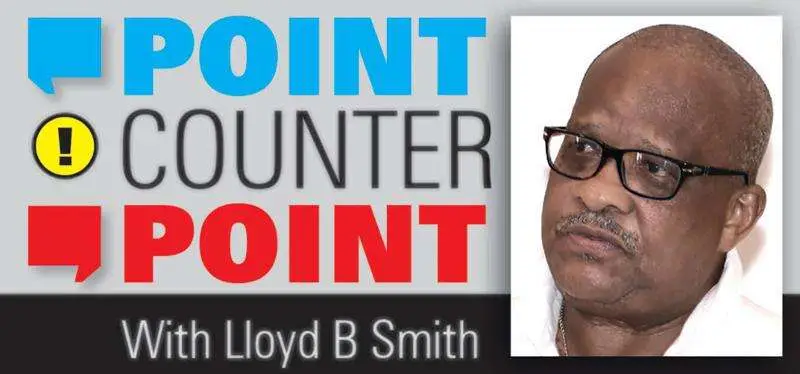
Who wants a constipated constitution?
Legal and Constitutional Affairs Minister Marlene Malahoo Forte has her heart in the right place with respect to Jamaica’s constitutional reform process, but she needs a great deal of help to navigate what is going to be a rough ride. So we had better fasten our seat belts.
It has been said that those who do not take time to understand history are condemned to repeat it. Unfortunately, many Jamaicans, most of whom do not read, are not sufficiently aware of what happened in the country’s political sphere leading up to 1962 when we attained political independence.
After the collapse of the ill-fated West Indies Federation, whose demise was secured by Jamaica Labour Party (JLP) Leader Alexander Bustamante, but was supported by the Norman Manley-led People’s National Party (PNP), the stage was set for the country to move towards full self-government. Queen Elizabeth II subsequently signed an Order in Council, which formally gave force and effect to the constitution.
Replete with legalese, the Jamaican Constitution has for decades remained up in the air despite previous attempts by both Michael Manley and Edward Seaga to restructure it and make it more people friendly and fully “Jamaicanised”, bereft of any colonial vestiges. Save and except for the Charter of Fundamental Rights and Freedoms, scant attention has been given to the constitution, with respect to the role and function of the Privy Council and the use of the death penalty.
In the meantime, human rights activists and some enlightened citizens have been advocating the abolition of the buggery and abortion laws which criminalise such acts. Needless to say, when the time comes to deal with these issues, it will be “hell and powder house” as there are many contending views which may have political implications.
As has been outlined by Minister Malahoo Forte, the first order of business is to move towards republican status, which primarily involves getting rid of King Charles III, his heirs and successors and replacing the monarch with a president, who will either be ceremonial, akin to the current post of the governor general, or an executive president, similar to what obtains in the United States of America.
However, in order to pass this first hurdle towards republicanism, the constitution dictates that there must be a referendum. In other words, every Jamaican citizen who is a registered voter will have a say as to whether the nation should shun the monarchy and embrace republican status. And there’s the rub, because there are some serious roadblocks that may be in the offing to reach this goal.
Firstly, if we are to go by recent polls as well as general election results, it is safe to say that the majority of Jamaicans are turned off from the electoral process, which has led to the recent call for more eligible citizens to get enumerated in order to participate in this most important referendum. In this regard, the big elephant in the room is the undeniable fact that we are a politically polarised nation, which means we tend to vote along party lines regardless of the issue at hand. This is why the Opposition PNP has been wary of the JLP leading the charge at this time, as the ghost of the 1961 referendum remains a haunting experience. The big question, therefore, is: Will Prime Minister Andrew Holness use the constitutional reform issue to the JLP’s advantage?
The Malahoo Forte-led Constitutional Reform Committee (CRC), which also comprises Opposition PNP members and people representing the wider society, has been at pains to assure the public that there is no hidden agenda and that all major decisions will be arrived at by way of national, bipartisan consensus. Should we hold our breath? Already, a number of civil society and special interest groups have been crying foul, arguing that the CRC should not be meeting behind closed doors and that its deliberations should be open to the public, and perhaps rightly so.
There is also much concern about timelines, especially against the background of Minister Malahoo Forte wanting to take the Bill, with respect to promulgating republican status, to Parliament by this May. Why this indecent haste? Is it that the Holness Administration wants to hold the referendum in tandem with the local government and general elections, which are just around the corner.
Meanwhile, there is the broader view that the public education and consultation approach is too limited and self-serving. To put it bluntly, town hall meetings and sectoral consultations will not suffice. Let us bear in mind that the majority of Jamaicans do not read. Many of them are either semi-illiterate or illiterate. Hearsay and “suss” is what they rely on, in addition to utilising the social media platforms as well as swallowing whatever their respective political or church representatives tell them. And finally, there are those dancehall and social media influencers who can effectively create mayhem or positivity in the minds of so many of our gullible citizens. These are factors that the CRC must take into consideration when it seeks to craft methodologies to reach the average Jamaican.
Another worrying factor in the minds of many sceptical Jamaicans is: What will be the benefits, economic or otherwise, to be gained from saying ta-ta to The King? In other words, many citizens want to know how their lives will improve if Jamaica becomes a republic. Many decades ago, the well-respected Carl Stone poll revealed that well over 60 per cent of Jamaicans felt that the country would be better off if it had remained a British colony. Has that thought process changed much?
In the final analysis, becoming a republic is going to be a very costly exercise in more ways than one. For example, billions of dollars will have to be spent to change symbols, emblems, official stamps, etc. But Jamaica must be commended for embarking on this most momentous and historic process. The world is watching.
Many constitutions worldwide were born out of bloody revolutions. Ours is likely to be a mature and peaceful process and for that we should be proud. We may well become a lasting and bold example of what can be achieved by this great nation by truly putting the people first and letting them decide their own destiny. That is why it is important not to be rushed; haste may well make waste, not to mention that too much bungling, vacillation, and politicking can stymie the process and lead to a massive clogging of the pipeline.
Lloyd B Smith has been involved in Jamaican media for the past 47 years. He has served as a Member of Parliament and Deputy Speaker of the House of Representatives. He hails from western Jamaica where he is popularly known as the Governor. Send comments to the Jamaica Observer or lbsmith4@gmail.com.

























